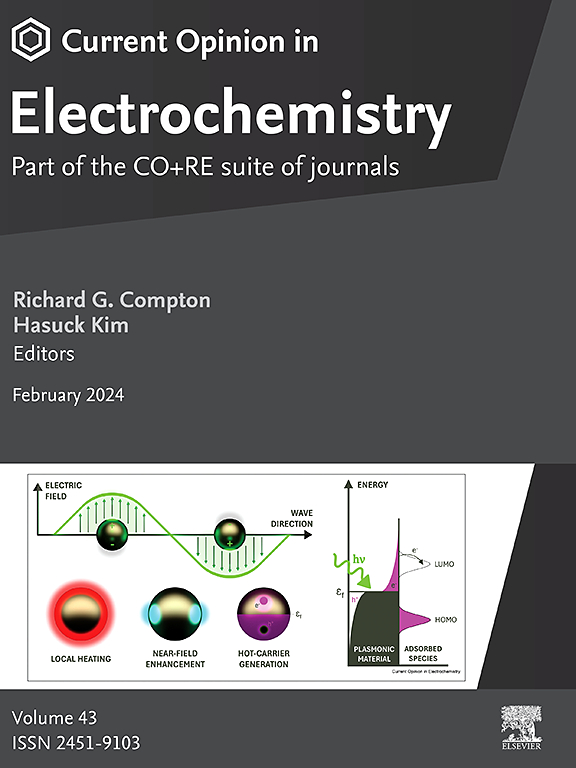Electrochemical upvaluing of waste plastic
IF 7.9
2区 化学
Q1 CHEMISTRY, PHYSICAL
引用次数: 0
Abstract
Examples of electrochemistry directly assisting in the upvaluing of waste materials are known for condensation polymers, which can be solvolyzed into electrochemically active species, and for self-immolative polymers, whose degradation can be triggered by a redox mediator. Polyolefins (e.g. polyethylene, polypropylene) must first be degraded thermochemically into diacid intermediates, which can then be electrochemically reverted into unsaturated monomers. Electrochemical processes may be of most use for detecting and destroying microplastics, but the process economics have yet to be demonstrated.
废塑料的电化学增值
电化学直接帮助提高废旧材料价值的例子有缩合聚合物(可溶解为电化学活性物质)和自焚毁聚合物(可由氧化还原介质引发降解)。聚烯烃(如聚乙烯、聚丙烯)必须首先通过热化学降解成二元酸中间体,然后再通过电化学还原成不饱和单体。电化学工艺在检测和销毁微塑料方面可能最有用处,但工艺的经济性还有待论证。
本文章由计算机程序翻译,如有差异,请以英文原文为准。
求助全文
约1分钟内获得全文
求助全文
来源期刊

Current Opinion in Electrochemistry
Chemistry-Analytical Chemistry
CiteScore
14.00
自引率
5.90%
发文量
272
审稿时长
73 days
期刊介绍:
The development of the Current Opinion journals stemmed from the acknowledgment of the growing challenge for specialists to stay abreast of the expanding volume of information within their field. In Current Opinion in Electrochemistry, they help the reader by providing in a systematic manner:
1.The views of experts on current advances in electrochemistry in a clear and readable form.
2.Evaluations of the most interesting papers, annotated by experts, from the great wealth of original publications.
In the realm of electrochemistry, the subject is divided into 12 themed sections, with each section undergoing an annual review cycle:
• Bioelectrochemistry • Electrocatalysis • Electrochemical Materials and Engineering • Energy Storage: Batteries and Supercapacitors • Energy Transformation • Environmental Electrochemistry • Fundamental & Theoretical Electrochemistry • Innovative Methods in Electrochemistry • Organic & Molecular Electrochemistry • Physical & Nano-Electrochemistry • Sensors & Bio-sensors •
 求助内容:
求助内容: 应助结果提醒方式:
应助结果提醒方式:


